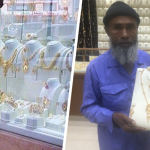In the western world, a Friday night with friends often involves getting dressed up, the consumption of alcohol and various forms of regret-inducing dancing. Night clubs and bars are abundant in number. Week-day relaxation, involves a quiet night in the pub.
While such endeavours have proven to be popular among young Brits for a long time, they don’t appeal to all. Among this group of club-avoiders, are British Muslims: A group distinct from that of their parents’ generation, and from their non-Muslim peers.
Like their non-Muslim counterparts, most British-Muslims have internalised the importance of a Friday evening, or after-work, period of relaxation. They too are keen are to keep up with the latest trends in fashion. What sets them apart from non-muslims of their age-group, is the desire to enjoy their youth in a way that is permissible in, and compatible with, their Deen.
Up until recently, the social scene was quite limited for British Muslims. Relaxing after work didn’t extend very far beyond gathering in each-others’ homes, or meeting in a restaurant. Moreover, this meant that there was little opportunity for like-minded Muslims to meet – a missed opportunity for working together in both charitable causes, and fruitful endeavours. Clothing options – too – were limited: Ask any Muslim girl and she will be able to recall several instances of finding the perfect outfit only to learn, on closer inspection, that the outfit was not compatible with the teachings of her religion.
However, things are changing. The last few years have witnessed the rise of projects which aim to cater to the British-Muslim experience. Modest clothing, beard-grooming products, mocktails in a bottle and halal-restaurants serving a whole host of different cuisine, have increased in availability.
In short, several Muslims – in particular, women – have tapped in to the increasing demand for halal-friendly experiences. Among this group of entrepreneurs, several have hosted their businesses online, allowing them to generate income alongside one’s 9-5 job, and contributing to the household income without worrying about the constraints of child-care.
In spite of this increase, there is potential for many more businesses to tap in to his market. The proportion of Young-Muslims, and therefore the opportunity to tap in the British-Muslim market, is projected to grow in the coming years. It is a market we know – we are that market. A British-Muslim market is ripe for the picking, and who better to pick at than those of us who have lived the British-Muslim experience? So whether your business idea is to hire out slipper-minders at a mosque or to produce a self-filling Lota (vessel for the toilet), don’t dismiss it. At least not until you’ve explored its potential success in the Muslim market.
The most obvious benefit to engaging in entrepreneurship is financial gain. More money means more disposable income. While financial gain is an obvious benefit, it is by no means the only one.
Entrepreneurship is useful for contributing to society, networking and therefore building relationships, providing a platform for voicing our opinions and, ultimately, helping others to help themselves, and others.
Empowerment of our youth is a topic we should be discussing more often
For Young British- Muslims, the current climate can be hostile, confusing and intimidating. Some media outlets have successfully managed to portray Muslims as “the other”, disloyal to British values and unable to integrate in to British society. Such a rhetoric is pervasive: It runs the risk of being internalised by young Muslims. There is a danger that young Muslims may feel they are unable to contribute effectively to society. This pervasive and damaging rhetoric is only compounded by the small numbers of Muslims at a prominent level in society – the results of which is a damaging, and counter-productive silence.
Entrepreneurship is a powerful means of contributing to society, and an even more powerful tool for networking. It places us in a better position to silence the voices which misrepresent us, and provides us with a voice to speak for ourselves.
Claiming back the narrative on how women should look, act and feel
British Muslim women are at even greater risk of internalising media-induced perceptions of how they should act, or feel. Like all women, British women are at risk of internalising the rhetoric that men are in the position to judge them on the way they look and act. The way we look and act becomes a public display; we find ourselves seeking approval, constantly. This serves to minimise a woman’s sense of self-belief in what she can offer to society, and to her home.
Such a perception is far from the authentic, true teachings of Islam. Look no further than the first woman of Islam: Khadijah RA. Khadija RA is not remembered for the way she looked. Rather, we are taught about her dedication to the cause of spreading Islam. She was courageous, independent in her thought, was successful and made very useful contributions to society.
What we need – now more than ever – is to remind Muslimahs that these are the attributes they should be trying to emulate.
Entrepreneurship allows women to invest in their own skills – whatever they may be – and to use them in ways that allow them to contribute to the household income.
It fosters a sense of independence among women of all ages. The ability to work from home, in particular, is conducive to financial independence in women, who usually bear the majority of child-rearing and house-keeping responsibilities.
Entrepreneurship can serve as a means of sadaqah
Whether it be at home, here in the UK, or in countries across the world, there is a pressing need for us to come together and provide financial support to those less fortunate than us. Giving to charity is one of the pillars of our faith and something we can all, including myself, be more active in.
Entrepreneurship, when lucrative, can provide a substantial and more importantly sustainable source of support to those in need of it. This is the mark of effective charity – sustainability: providing help – be that financial or otherwise, such as teaching a skill – such that a person becomes self-sufficient and is able to help not only themselves, but others. Countless examples of income generations projects across the world are testament to this.
Essentially, entrepreneurship – when implemented with sincere intention – can acts as a means of helping others to help themselves.
And it is with this intention in mind, that I am hosting an event for budding entrepreneurs: one which aims to bring them together, to learn about how they can convert their ideas and skills, in to a successful business. To do so, we have invited along Selinah Bakkar of Amaliah; Shahin Hussain of Nojito and The Mocktail Company; Sabah Nazir of Islamic Moments; Zanib Mian, founder of Sweet Apple Books; Khurram Malik, founder of Strategem and author of “The Billion Dollar Muslim” and Rooful Ali founder of RACREATION and the Emerald Network to discuss their journeys in to entrepreneurship. They will be around for the entire evening and thus there will be ample opportunity for personal Q&A.
The event will be held on the 13th December, at the virgin money lounge in Haymarket. We have called this event legacy, in the hope that the evening will mark the beginning of entrepreneurial relationships and develop in to fruitful endeavours. Endeavours, which will allow our guests to leave a legacy of projects which we can benefit from as an Ummah.
Further details event can be found here. You can book here:
This particular event is one of a series of fundraising events that I am holding, in aid of my pledge to raise £20,000 for Muslim Aid’s Syria Hospital Appeal.
The importance of raising funds for this hospital – which aims to provide emergency ambulances, medical supplies, emergency beds, mortuaries and blood – speaks for itself.
So, even if you’re like me and the closest you’ve come to entrepreneurship is that time you sold your friend a used lipstick, come along. Be a part of raising funds for this very important cause, and leave your legacy of charitable acts at the lounge. Fundraising will be led by Rahim Jung.
All donations are much appreciated, and can be made here:
About the author: Dr Tuba Mazhari has a PhD in Epidemiology and Public Health from UCL. She is currently working as a research associate for the Amy Winehouse Foundation.


